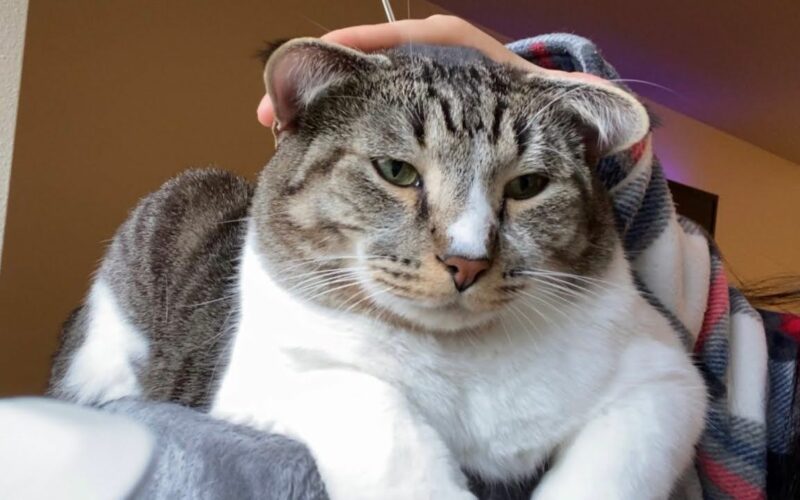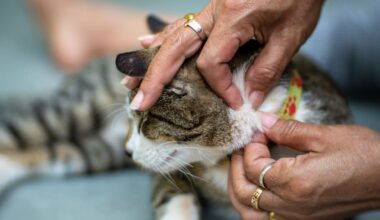As a cat owner, you may have noticed that sometimes the insides of your furry friend’s ears are wet. It can be nothing but also mean many different things, from minor annoyances to serious health problems.
It’s important to know why your cat’s ears are wet so you can give them the care and support they need to stay healthy and happy.
Here are 6 good reasons why your cat’s ears might be wet inside and some simple tips on how to deal with it:
Reason 1: Water Build-up
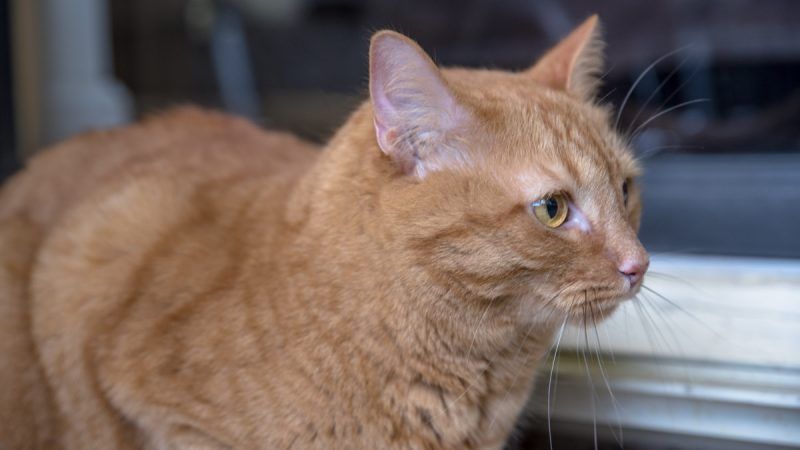
When cats swim or get wet, water can get stuck in their ears, making them feel damp. This is especially true if their ears hang down and make it hard to shake them dry. If your cat likes to swim, water might get stuck in its ears and make them wet. Drying their ears well after swimming is essential to avoid getting an infection.
If your cat has been in the sun too long, the heat can wet its ears. Getting them some shade and a cool place to rest can help. Wipe the water out of their ears with a cloth or cotton ball to keep them as dry as possible. If your cat often gets ear infections, it’s best not to bathe it.
When cleaning their ears, use a cleaning solution approved by your vet and a soft cotton ball or cloth to wipe the outside and inside of your cat’s ears. Please don’t put anything in their ear canals, as this can hurt them and cause trauma.
Reason 2: Too Much Ear Wax
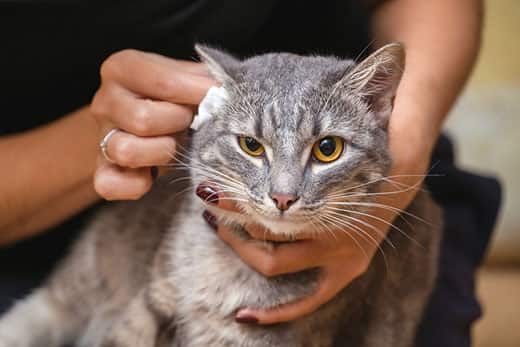
Sometimes, a cat’s body might make too much ear wax. This can block the ear canal and hold moisture, making the ears feel wet. Most of the time, allergies, a weak immune system, or a parasite infestation are to blame for too much ear wax. If a cat has allergies, the allergen may make the cat’s body make more wax. Cats with weak immune systems may get sick more often, which can cause the wax to build up.
Cats with parasites like ear mites may make too much ear wax because the pests make their ears itchy. It’s essential to take care of your cat’s ears regularly to keep too much earwax from building up. You should often check your cat’s ears by gently pulling the outer ear back and looking into the ear canal.
The insides of your cat’s ears should be pale pink with no smell, wax, or debris. If you find dark debris, too much wax, or a foul odor coming from your cat’s ear, you should take them to the vet as soon as possible. Your vet can look in your cat’s ears to find out what’s wrong and treat it. Treatment may include ear drops, deep ear canal cleaning, anti-inflammatory medicine, or something else, depending on the problem.
Reason 3: Allergies
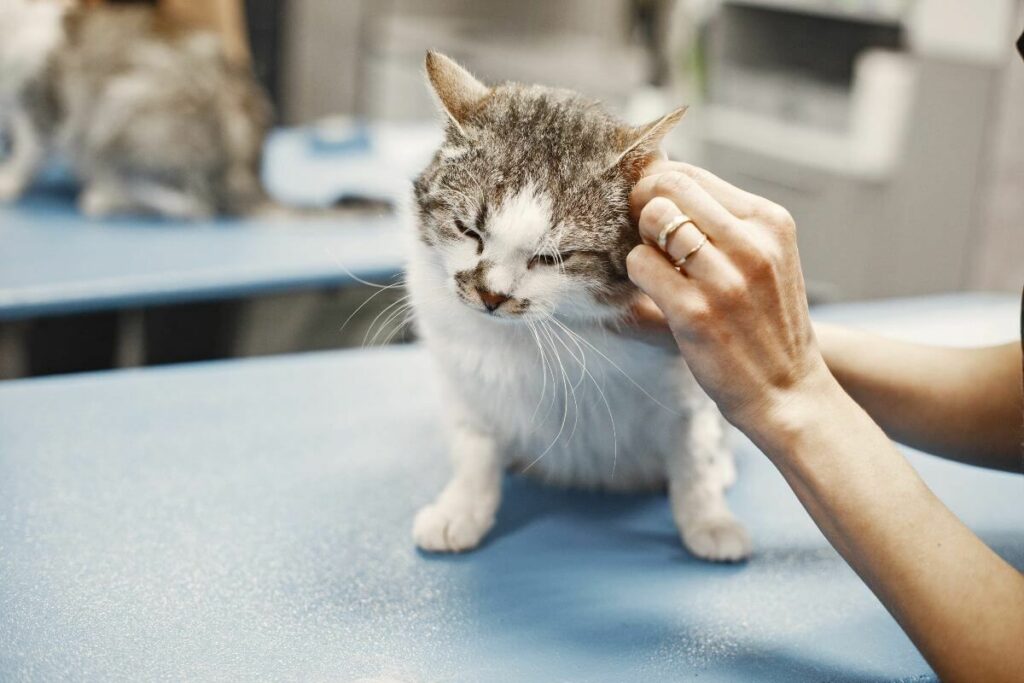
Cats can get allergies from food, flea bites, or something in the environment like dust or pollen. These allergies can make your ears itch, turn red, and swell, making them wet. Cats’ ears often get wet because of allergies, which can be a pain for the cat and its owner. Food, flea bites, dust, or pollen allergies can cause the ears to become itchy and inflamed, making them wet.
Your cat might scratch or paw at its ears or shake its head to make it feel better. They may also start to tilt their heads, lose their balance, or get angry. As the inflammation gets worse and the cat keeps scratching, the ears can get red and swollen, and there may be dark brown wax or a bad smell coming from the ears. It’s important to remember that allergies can lead to ear infections and wet ears.
It is essential to take your cat to the vet immediately if it has allergy symptoms or wet ears. Your vet will look at your cat’s ears and may suggest an allergy test or give your cat anti-inflammatory drugs to treat the real problem. You can do things at home to stop your ears from getting wet when you have allergies. Limit your cat’s exposure to something that could cause allergies. Keep your cat inside and away from places with dust, pollen, or fleas.
Reason 4: Skin Diseases
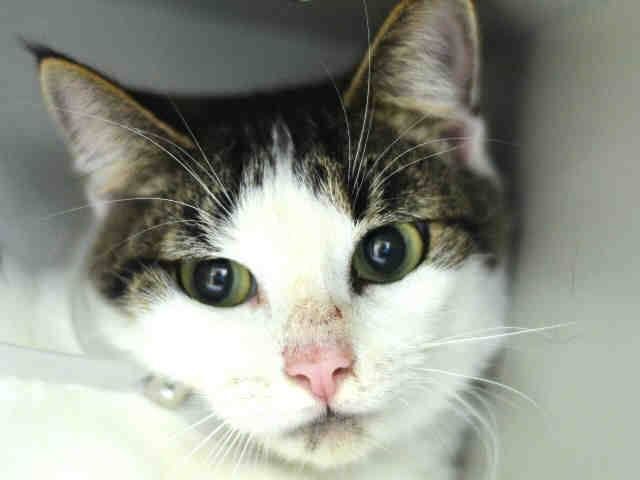
Different skin diseases, like seborrhea, psoriasis, or mange, can make the ears red, irritated, and itchy. This can make them lick and scratch their ears, making them wet and dirty. It’s essential to check your cat’s ears for any signs of skin disease. The most common symptoms are redness, swelling, and itching.
Skin diseases can usually be controlled and kept from worsening with proper care. It’s essential to take care of them regularly to keep your cat’s ears from getting sick. Check your cat’s ears often to see if they are red, swollen, dripping, or have a bad smell. If any of these things are happening, you should take your cat to the vet right away.
Using a solution of half hydrogen peroxide and half water to clean your cat’s ears may also help to prevent ear infections and other ear problems. The best way to prevent and treat ear problems in your cat is to care for and keep an eye on its ears regularly. You can help keep your cat’s ears healthy and free of infections by giving them the care and attention they need.
Reason 5: Ear Mite Infestations
These tiny parasites can make you feel very itchy and uncomfortable, making you scratch and shake your head. The constant shaking can lead to wet, dirty ears and even an infection if you don’t treat it. Ear mites are very contagious, so if your cat has been outside or has been around other cats, it may have picked them up.
Keep your cat inside and check their ears for signs of ear mites to stop an infestation. When cats get ear mites, it can be excruciating and uncomfortable for them, and the mites can make their ears wet and dirty. If your cat has been around other cats, there is always a chance that it has picked up ear mites from them. These tiny parasites cause a lot of itching and discomfort, which makes people scratch and shake their heads, which makes their ears wet and dirty.
If you don’t take care of an ear mite problem, it can lead to an infection and other problems. To keep your cat from getting ear mites, you should keep them inside and check their ears for any signs of mites. If you see your cat scratching at its ears, shaking its head, looking wet, or smelling bad, you should call your vet as soon as possible to find out what’s wrong. Depending on the problem’s severity, your vet may give you creams or drops to help eliminate the mites.
Reason 6: Ear Infections
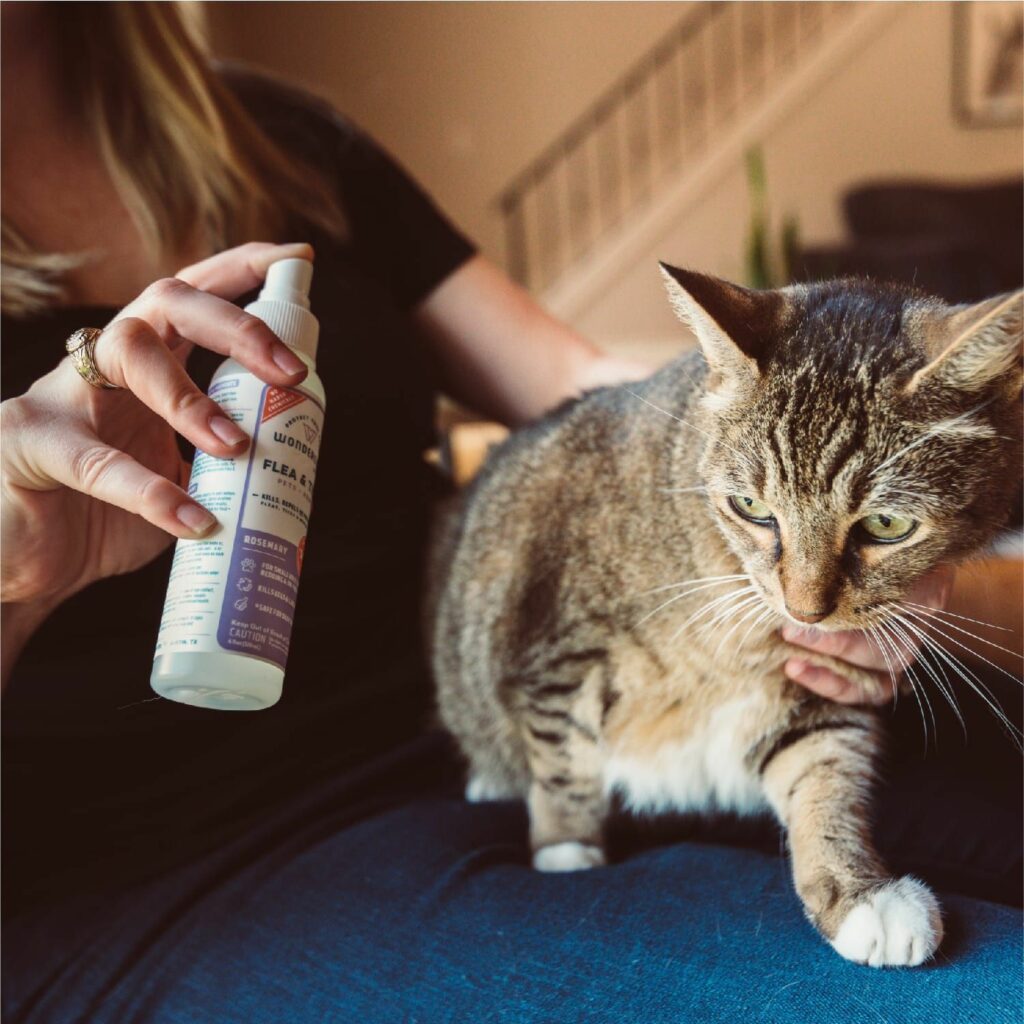
Bacteria, yeast, or fungi can get into the inner ear and cause infections, which can cause pus to drain and the ear to swell. In severe cases, it can cause your cat to shake its head, lose its balance, and lose its hearing. Infections of the ear canal are caused by bacteria or yeast and are accompanied by more scratching, shaking of the head, a bad smell, and more ear wax. Middle-ear infections are caused by long-term infections that spread from the ear canal to the middle ear. This can make you tilt your head, have trouble eating, feel tired, or be irritable.
Cats can get ear infections because of many things, like allergies, parasites, or a weak immune system. Ear infections can be painful and uncomfortable, and if they aren’t treated properly, they can cause problems that last for a long time. Cats with ear infections constantly scratch and paw at their ears, have a terrible smell, can’t hear well, tilt their heads, shake their heads, have redness and swelling, and may act differently, like being sad or irritable.
If you think your cat has an ear infection, you should take them to the vet. They can rule out other possible causes, like parasites or allergies, and figure out the best way to treat them. Ear drops, deep cleaning of the ear, anti-inflammatory drugs, and treatment for the cause of the infection can be used to treat ear infections in cats. Regularly cleaning your ears at home can help keep them free of debris and wax build-up, which can lead to ear infections.
Final Thoughts
The ears of cats are sensitive and fragile, so it’s important to know what to look for when there’s a problem. If your cat seems uncomfortable, take it to the vet to get a proper diagnosis.
Signs to watch out for are when your cat is shaking its head, pawing at its ears, losing its hearing, or dripping from its ears. Ear mites, ear infections, and allergies are everyday things that can make a cat’s ears hurt.
The vet may suggest ear drops, deep ear canal cleaning, anti-inflammatory medicine, or other treatments for whatever’s causing the problem. Also, to keep your cat’s ears from getting infected, you should clean them often and keep them inside. Doing these things can help your cat’s ears stay healthy, comfortable, and free of infections.
Further Reading
